Red Sea Crisis: India Holds Inter-Ministerial Meet on Trade Impact
By Rediff Money Desk, NEWDELHI Jan 13, 2024 18:02
India's commerce ministry will meet on January 17 to discuss trade disruption caused by the Red Sea crisis, impacting routes and raising costs for exporters.
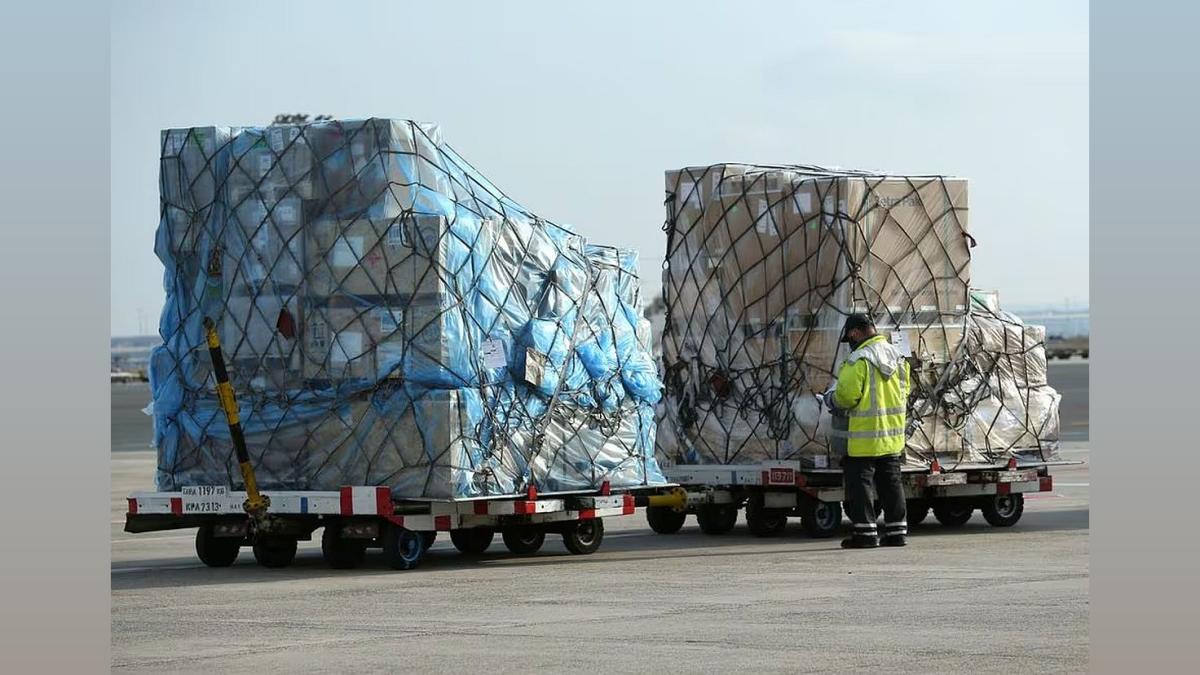
Photograph: Ralph Orlowski/Reuters
New Delhi, Jan 13 (PTI) The commerce ministry has called a high-level inter-ministerial meeting on January 17 to discuss the way forward on the trade front in the wake of ongoing problems in the Red Sea, a senior official said on Saturday.
Senior officials from five ministries -- external affairs, defence, shipping and finance (department of financial services) and commerce -- will participate in the deliberations.
The commerce ministry has also set up an internal strategic group, comprising additional secretaries of the ministry, to discuss global issues impacting the country's trade on a daily basis and prepare a strategy so that India's response can be quick and decisive.
"This Wednesday, we are holding an inter-ministerial consultation. We will be discussing the way forward," the official said.
The situation around the Bab-el-Mandeb Strait, a crucial shipping route connecting the Red Sea and the Mediterranean Sea to the Indian Ocean, has escalated due to recent attacks by Yemen-based Houthi militants.
Due to these attacks, the shippers are taking consignments through the Cape of Good Hope, resulting in delays of almost 14 days and also higher freight and insurance costs.
New trade routes are also being considered and "we will keep exploring our options if the problems at Red Sea escalate," the commerce ministry official added.
The issues being faced by the stakeholders concerned were discussed at a high-level meeting in the commerce ministry on January 4.
Stakeholders, including traders, shippers, container firms, and freight forwarders were present in the meeting.
Exporters are apprehensive that the crisis may cause some trade disruption because the cost of moving it around becomes expensive.
"We are watching the situation very closely. There is some cost implication for our exports, but since there are inventories for almost a month only, if it escalates for long then it will be a major problem. We are worried," the official added.
The commerce ministry has also asked the ECGC not to increase the export credit interest rates.
State-owned ECGC is an export promotion organisation, seeking to improve the competitiveness of Indian exports by providing them with credit insurance covers.
Exports to Europe, the east coast of the US and Latin America are facing problems due to the crisis.
Due to attacks, shipping lines have reduced their movement through the Red Sea and are taking the longer route via the Cape of Good Hope, encircling the African continent.
The trade route of Bab-el-Mandeb Strait, the Suez Canal, and the Red Sea is shorter and faster than the Cape of Good Hope route, making it the preferred option for most shipping companies.
The route starts from major Indian ports like Mumbai, JNPT, or Chennai, heads westward through the Arabian Sea, enters the Red Sea, and navigates through the Suez Canal into the Mediterranean Sea.
From there, ships can reach various European ports, depending on their destination.
The Cape of Good Hope route is longer and slower, but it avoids the potential for delays or disruptions at the Suez Canal.
It is typically used for bulk cargo shipments where time is less critical or when political instability in the Middle East raises concerns about using the Suez Canal.
The route starts from the same Indian ports, heads southward across the Indian Ocean, rounds the Cape of Good Hope at the southern tip of Africa, and then sails northward along the west coast of Africa before entering the Mediterranean Sea and reaching European ports.
Senior officials from five ministries -- external affairs, defence, shipping and finance (department of financial services) and commerce -- will participate in the deliberations.
The commerce ministry has also set up an internal strategic group, comprising additional secretaries of the ministry, to discuss global issues impacting the country's trade on a daily basis and prepare a strategy so that India's response can be quick and decisive.
"This Wednesday, we are holding an inter-ministerial consultation. We will be discussing the way forward," the official said.
The situation around the Bab-el-Mandeb Strait, a crucial shipping route connecting the Red Sea and the Mediterranean Sea to the Indian Ocean, has escalated due to recent attacks by Yemen-based Houthi militants.
Due to these attacks, the shippers are taking consignments through the Cape of Good Hope, resulting in delays of almost 14 days and also higher freight and insurance costs.
New trade routes are also being considered and "we will keep exploring our options if the problems at Red Sea escalate," the commerce ministry official added.
The issues being faced by the stakeholders concerned were discussed at a high-level meeting in the commerce ministry on January 4.
Stakeholders, including traders, shippers, container firms, and freight forwarders were present in the meeting.
Exporters are apprehensive that the crisis may cause some trade disruption because the cost of moving it around becomes expensive.
"We are watching the situation very closely. There is some cost implication for our exports, but since there are inventories for almost a month only, if it escalates for long then it will be a major problem. We are worried," the official added.
The commerce ministry has also asked the ECGC not to increase the export credit interest rates.
State-owned ECGC is an export promotion organisation, seeking to improve the competitiveness of Indian exports by providing them with credit insurance covers.
Exports to Europe, the east coast of the US and Latin America are facing problems due to the crisis.
Due to attacks, shipping lines have reduced their movement through the Red Sea and are taking the longer route via the Cape of Good Hope, encircling the African continent.
The trade route of Bab-el-Mandeb Strait, the Suez Canal, and the Red Sea is shorter and faster than the Cape of Good Hope route, making it the preferred option for most shipping companies.
The route starts from major Indian ports like Mumbai, JNPT, or Chennai, heads westward through the Arabian Sea, enters the Red Sea, and navigates through the Suez Canal into the Mediterranean Sea.
From there, ships can reach various European ports, depending on their destination.
The Cape of Good Hope route is longer and slower, but it avoids the potential for delays or disruptions at the Suez Canal.
It is typically used for bulk cargo shipments where time is less critical or when political instability in the Middle East raises concerns about using the Suez Canal.
The route starts from the same Indian ports, heads southward across the Indian Ocean, rounds the Cape of Good Hope at the southern tip of Africa, and then sails northward along the west coast of Africa before entering the Mediterranean Sea and reaching European ports.
DISCLAIMER - This article is from a syndicated feed. The original source is responsible for accuracy, views & content ownership. Views expressed may not reflect those of rediff.com India Limited.
You May Like To Read
TODAY'S MOST TRADED COMPANIES
- Company Name
- Price
- Volume
- Srestha Finvest
- 0.69 (+ 1.47)
- 24964193
- Vodafone Idea L
- 7.46 ( -2.74)
- 21697671
- Suzlon Energy Ltd.
- 55.70 ( -6.21)
- 16751055
- GTL Infrastructure
- 2.03 ( -3.79)
- 10338399
- Ashapuri Gold Ornam
- 9.04 (+ 4.99)
- 8447927
MORE NEWS

RBI Names SBI, HDFC, ICICI as Domestic...
The Reserve Bank of India has designated State Bank of India, HDFC Bank, and ICICI Bank...

HCLTech Appoints Arjun Sethi as Chief Growth...
HCLTech appoints Arjun A Sethi as Chief Growth Officer for Strategic Segments, focusing...
Passenger Vehicle Sales Up in October: SIAM
Passenger vehicle wholesales rose marginally to 3,93,238 units in October, while...



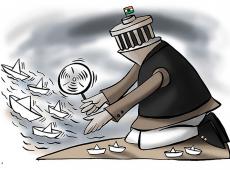
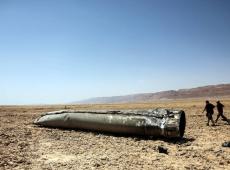
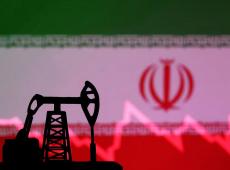


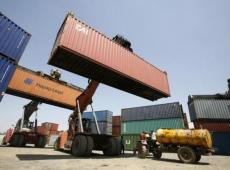


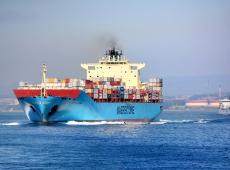
 © 2024 Rediff.com India Limited. All rights reserved.
© 2024 Rediff.com India Limited. All rights reserved.